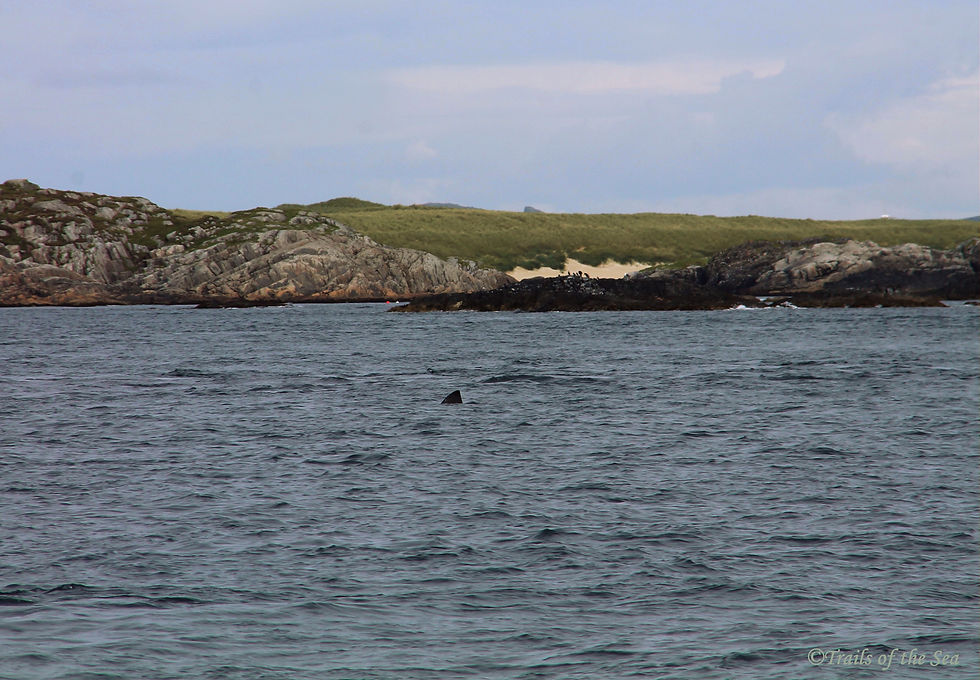Sharks have the stereotypical perception of being killers that eat everything that they come across and see. They got this perception mainly through movies. I however, think that sharks are fascinating, beautiful and misunderstood creatures, for most shark species are relatively small and could and never would be able to harm a human. Seriously sharks do not like the taste of humans! Sharks are very important for various marine ecosystems, one could even argue that they are key stone species and an indicator to the health of the marine ecosystem. However sharks are sincerely under threat from us humans.

Grey reef shark (Carcharhinus amblyrhynchos) an highly threatened shark species. Image taken from unsplash
Who is more dangerous humans vs. sharks. Each year an average of 80 people are attacked worldwide by sharks and on average just 1 of these attacks is fatal. And most of these ‘’attacks’’ are actually sharks that are not sure if the human is prey or not, so they have a little nibble and decide then that a human is no food. Of all the shark attacks on humans only three species are involved, the great white shark (Carcharodon carcharias), tiger shark (Galeocerdo cuvier) and the bull shark (Carcharhinus leucas). And there are more than 400 shark species of sharks. Humans on the other hand kill roughly between 75 million and 100 million sharks per year! These numbers are unsustainable for any species to stay in balance. In January 2021 a research got published which found that shark numbers have been declining at an alarming rate in the last 50 years with a decline of 71%! The main reason for this decline is shark finning and overfishing. Shark finning is a technique where the fins of the shark are cut of and the bodies thrown back into the sea while at times still alive. Which leads to a slow and horrible death.
Why are sharks being fished? There is a rising demand for shark fins for in shark fin soup especially in Asian cultures where shark fin soup is a delicacy. Shark fishing is also very profitable for fisherman, for a fisherman could earn $400 or more per kilogram of shark fins. The price depends on the species of shark. Most of the fishing happens either illegal, unregulated and/or unreported. Besides the shark finning, sharks are also caught in other fisheries as by-catch, this mostly happens by accident, but because of the fear for sharks some fisherman still kill the sharks. Shark finning has been banned in many countries, but unfortunately and strangely enough, in most of these countries the selling of shark fins is not banned. All this is causing a very steep decline, which is bad for the sharks and the marine environment.
The ecological importance of sharks.
There are over 400 species of sharks and they come in all sizes. Half of these shark species are less than 1m in length. The smallest shark known is the dwarf lantern shark (Etmopterus perryi) which is roughly the size of a human hand, the largest shark is the whale shark (Rhincodon typus) and can reach 18m in length. The whale shark may be the largest but, is also one of the three filter feeding species, who mostly eating plankton like the baleen whales.

Basking shark (Cetorhinus maximus) one of the filter feeding shark species taken in the Gunna sound between the isle of Tiree and Coll, Scotland. I absolutely loved seeing Basking sharks in the wild. They swim so gracefully through the water eating plankton.
Sharks are extremely important to the marine ecosystem as top predators, they keep the oceans healthy. Sharks can be found in every single marine habitat, from the deep sea, to coral reefs and in the arctic. The removal of sharks from an ecosystem would create a ripple effect to the populations of their preys. Sharks are the top predators in their ecosystem, and only have a few predators: Orca’s and humans.
Let’s look at the effect of sharks on coral reefs. Without sharks, larger predatory fish would increase in abundance and feed uncontrollably on herbivore fish species. Less herbivore species means that corals can no longer compete against macroalgae for settlement on reefs. Coral reefs are dependent on herbivore fish species to graze on the macroalgae and create space for corals to settle and grow. If a coral reef were to be completely covered by algae, this would lead to a homogenous ecosystem with less species diversity and abundance.
In a coral reef with sharks, sharks would regulate species abundance by removing sick and weak individuals, and making sure that not a single species gets to dominant on the reef. This leads to an ecosystem with great diversity and abundance. Another effect of sharks is that they control spatial distribution as well. For some species like dolphins would avoid shark invested waters even though these water are rich in food. This happens for example in Shark Bay, Australia, there is enough food for both sharks, dolphins and turtles. However because sharks also feed on the dolphins and turtles they avoid the bay. This then leads to an ecosystem in balance within the bay.
In other words, the decline of sharks would create a ripple effect to the species below the sharks in the food web, and could destroy the marine ecosystem itself.
Sharks are beautiful animals that come in many different sizes and are very important for the health of the marine ecosystem. And should be protected against us humans.
Sources







Comments